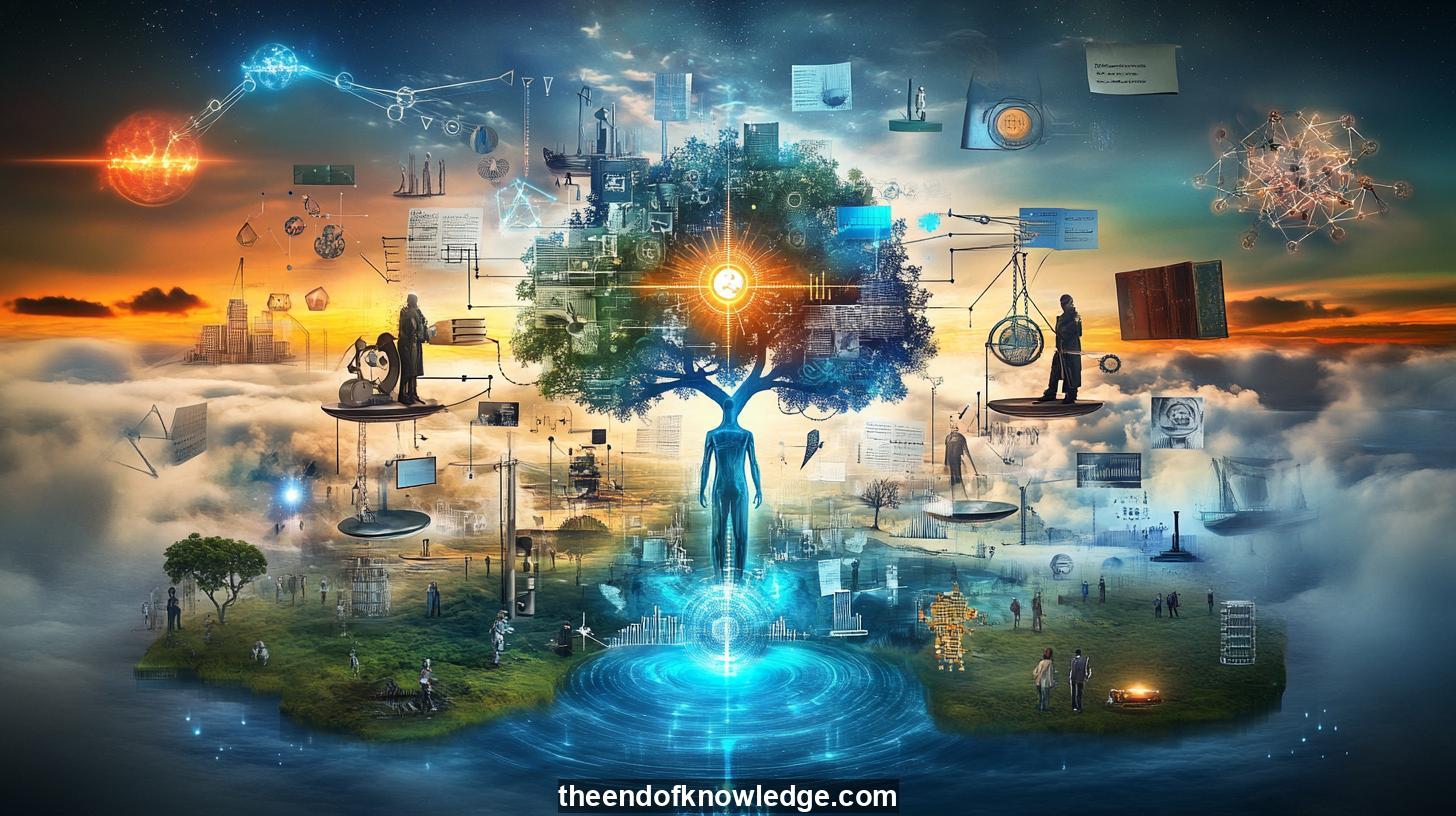 >
>
Concept Graph, Resume & KeyIdeas using DeepSeek R1 :
Resume:
The discussion revolves around the concept of leadership in the era of artificial intelligence, drawing parallels to historical figures like Steve Jobs and exploring the need for new leadership paradigms. Participants emphasize the importance of vision, innovation, and human-centric values in leaders, highlighting how these qualities can shape the future of technology and society. They also touch on the challenges of maintaining individuality and ethical responsibility in a rapidly changing world.30 Key Ideas:
1.- The era of artificial intelligence demands new leadership paradigms that prioritize vision and innovation.
2.- Steve Jobs exemplified leadership by merging technology with art and fostering a visionary approach.
3.- Future leaders must balance technological advancement with empathy and human values.
4.- Decentralization and blockchain technology may produce new types of leaders who champion transparency and justice.
5.- The need for ethical responsibility in leadership is crucial to guide humanity through technological challenges.
6.- Society requires leaders who inspire and empower individuals while promoting collective well-being.
7.- The tension between individualism and collectivism must be addressed to develop effective future leadership models.
8.- Education and critical thinking are essential for cultivating the next generation of leaders.
9.- Artificial intelligence poses both opportunities and risks, depending on the values of its leaders.
10.- Leaders must commit to transparency and justice to ensure technological advancements benefit all.
11.- The legacy of Steve Jobs highlights the importance of innovation and design in shaping the future.
12.- Ethical leadership is vital to prevent technology from undermining human dignity.
13.- The discussion emphasizes the need for leaders who can navigate the complexities of a rapidly changing world.
14.- Visionary leaders must challenge the status quo and inspire transformative change.
15.- The role of empathy in leadership is crucial for fostering trust and collaboration in the AI era.
16.- Leaders should prioritize human-centric values to ensure technology serves the greater good.
17.- The intersection of technology and art can drive innovation and create meaningful societal impact.
18.- Future leaders must balance individual creativity with collective responsibility.
19.- The empowerment of individuals through education is key to developing ethical and visionary leaders.
20.- The discussion highlights the potential of AI to enhance human dignity if guided by responsible leadership.
21.- Leaders must advocate for transparency to build trust in technological advancements.
22.- The need for ethical leadership in the AI era is more pressing than ever to address societal challenges.
23.- Visionary leaders can inspire humanity to embrace technological progress while preserving human values.
24.- The legacy of Steve Jobs underscores the importance of merging technology with human-centered design.
25.- Future leaders must navigate the complexities of decentralization and blockchain technology.
26.- The discussion emphasizes the role of empathy in fostering a sense of community and shared purpose.
27.- Leaders must prioritize justice and equality to ensure technological advancements benefit all.
28.- The empowerment of individuals through education is essential for developing ethical and visionary leaders.
29.- The potential of AI to enhance human dignity depends on the values and priorities of its leaders.
30.- Ethical leadership is crucial to ensure that technology serves humanity's best interests.
Interviews by Plácido Doménech Espí & Guests - Knowledge Vault built byDavid Vivancos 2025